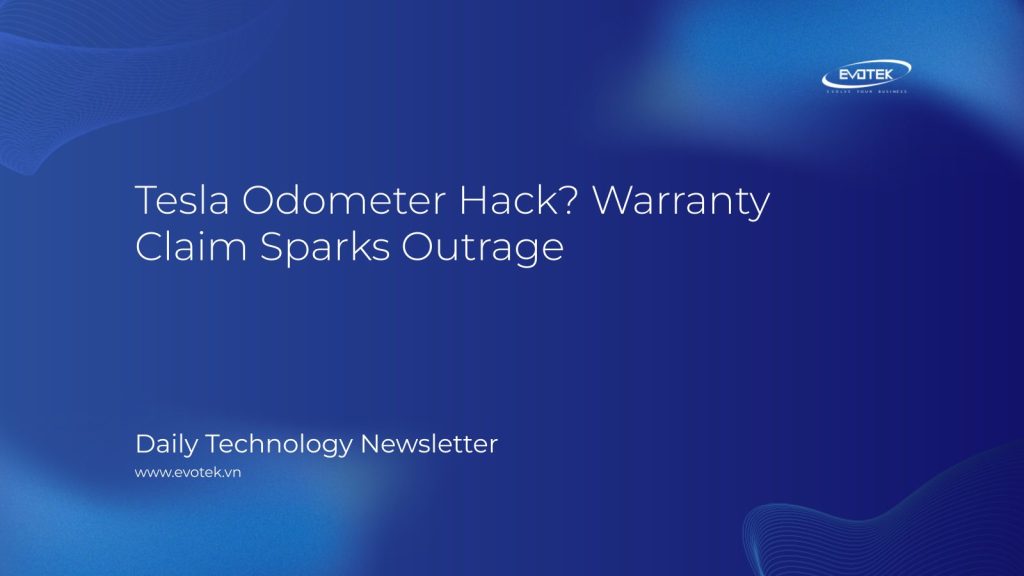A California Tesla owner has filed a lawsuit alleging that Tesla remotely manipulated his car’s odometer, potentially to avoid warranty repairs. The suit claims the vehicle’s mileage increased at an abnormally high rate, pushing it past the 50,000-mile warranty limit.
Odometer Shenanigans: A Closer Look
The owner reported that despite consistent daily drives, his odometer readings skyrocketed. After surpassing the warranty threshold, Tesla allegedly denied further service. The odometer readings then purportedly returned to normal, raising suspicions of deliberate manipulation.
This isn’t an isolated incident. Online forums, like Tesla subreddits, are filled with similar complaints, suggesting a pattern of odometer inflation among certain Tesla vehicles.
Tesla’s History of Questionable Practices
This lawsuit follows previous accusations against Tesla, including a 2023 scandal where the company allegedly misled drivers about their cars’ actual range. A secret “diversion team” was supposedly created to deflect complaints and avoid warranty claims, even going as far as faking remote diagnostics.
These allegations highlight concerns about Tesla’s over-the-air update system. While intended for improvements, this system allows the company to remotely alter vehicle functions, sometimes against the owner’s interests.
The Dark Side of Connected Cars
The ability to remotely control vehicle functions raises ethical questions about ownership and control. While some remote functions are disclosed, others, like remotely unlocking a car for repossession, remain hidden. This raises a critical question: Who truly controls your car?
Security experts warn that such remote access creates vulnerabilities. Manufacturers, hackers, or even governments could potentially manipulate vehicles for malicious purposes. This has led to discussions about modifying car software; however, circumventing software locks is a felony under the Digital Millennium Copyright Act (DMCA).
“Demon-Haunted” Cars and Enshittification
The author suggests that modern cars are becoming “demon-haunted,” designed to deceive owners and prioritize corporate interests. The term “enshittification” describes how companies initially provide value to users before gradually degrading the experience to benefit business customers.
The DMCA shields manufacturers from scrutiny, making it difficult for owners to investigate potential manipulation. This underscores the need for greater transparency and user control over connected devices.
The article concludes by highlighting how laws like the DMCA empower corporations to prioritize profits over user rights. It suggests that countries could retaliate against companies like Tesla by abolishing anticircumvention laws, allowing users to jailbreak their vehicles and unlock features, promoting fair competition and consumer control.
Keywords: Tesla, odometer, warranty, hacking, lawsuit, DMCA, right to repair, electric vehicles, auto news

 日本語
日本語 한국어
한국어 Tiếng Việt
Tiếng Việt 简体中文
简体中文